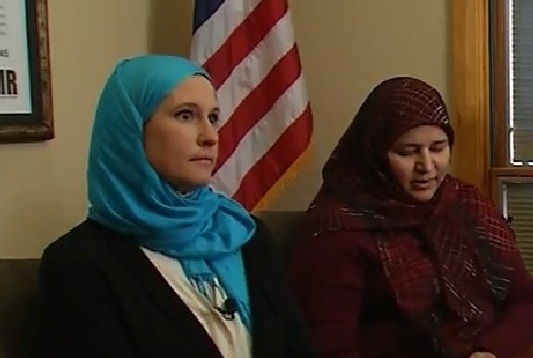
RNA - "Columbus has been really great and diverse and everything, but there are definitely concerns growing," said Zerqa Abid.
We sat down with four Muslim women. All of them are from central Ohio. And all of them are worried.
"You can't paint us with one broad brush," said Jennifer Nimer.
They're worried about how you view their Muslim religion and how you view them.
"I don't wear the hijab and they say, 'You don't look Muslim, you have light features,'" said Dena. She asked us not to use her last name. "Well, who is a Muslim? There are different types of Muslims all over the world," she said.
While they've all lived and worked here for years, they say they've noticed a change since Donald Trump was elected president. That's why they wanted to talk to us.
They say strangers are now more outspoken, critical, and even threatening. The women are fearful of discrimination, hatred, and worried that their children could be targeted. They're also wondering if the new president will stand with them.
"There's a lot of bias. Is he going to stand up for all Muslim Americans, that have been living here who are citizens and haven't done anything wrong? They're just trying to live their normal lives," said Dena.
Dena is a teacher. Jennifer is a lawyer for the Council on American-Islamic Relations, Ohio. Nahla is a homemaker. Zerqa founded a non-profit called My Project USA. All of them are educated and know the importance of helping others who have less. Every month they serve hundreds of meals at the homeless shelter and for the holidays they delivered gifts. It's all part of their Muslim faith.
"We contribute to society. We're not here in our own little community not caring about bigger issues," said Jennifer.
In fact, they're all concerned about radicalization of their children. They point out that the Ohio State attacker was radicalized at some point. Nahla says fringe groups are misrepresenting their religion in order to push their agenda. That's something she says other major religions have also had to deal with over time. "And it has nothing to do with the religion. I think that's what people need to understand," said Nahla. "All we can do is open up a dialogue. Your neighbor, your kid's teacher..."
The four are hoping communication will lead to compassion. A better understanding of who they are and what their faith represents.
And they want to remind their children that being a Muslim in the United States is being part of America too. "The last thing we want them to be is ashamed of who they are," said Nahla.
847/940